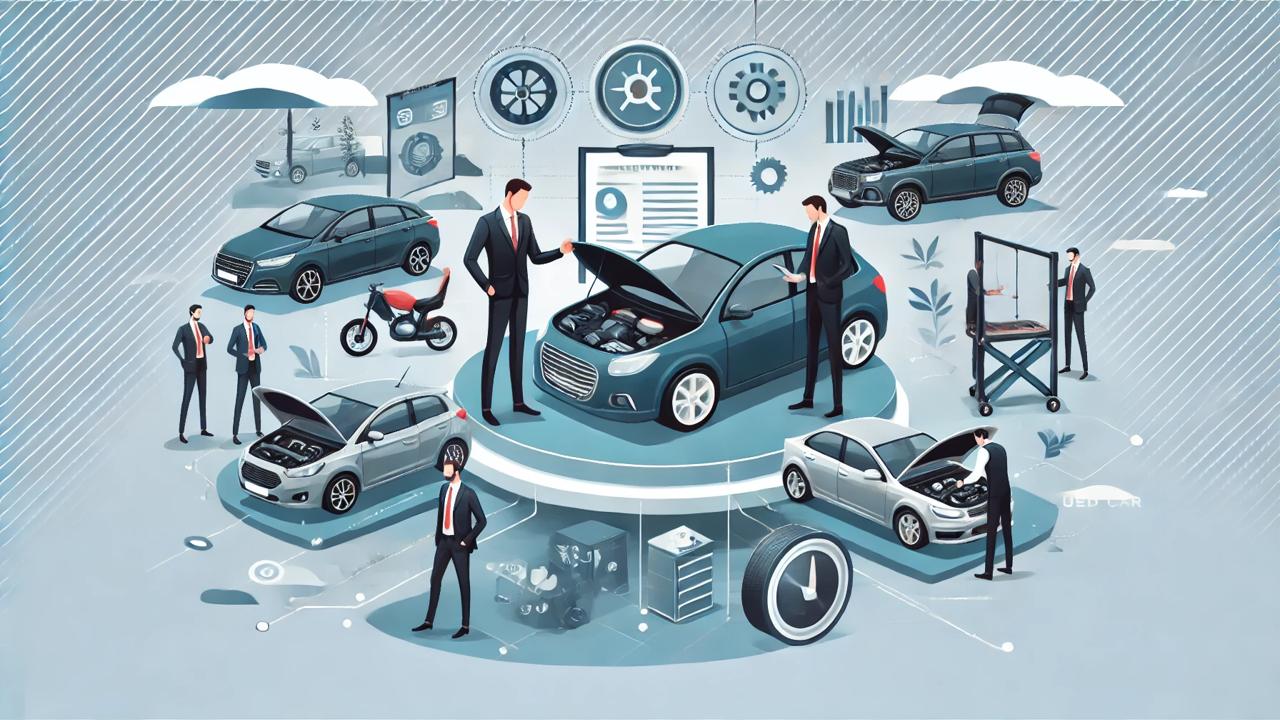What to Consider When Buying a Car? New vs. Used Car Selection

1. Set Your Budget
The first step in buying a car is setting your budget. When buying a car, you should consider not only the price of the vehicle but also additional expenses such as insurance, maintenance, fuel consumption, and taxes. New cars usually come with higher prices, but used cars may offer more affordable options.
- New Car: Comes with a higher price tag and the benefits of new technology, but typically has lower maintenance costs in the first few years.
- Used Car: Offers a lower initial cost, but may require more maintenance depending on the car's age and condition.
2. Determine the Type of Car You Need
It is important to choose a car that fits your needs, whether for family, work, or daily use. When determining the car type, consider the following factors:
- Travel Type: Will you be driving mostly in the city or taking long trips? For city use, smaller and more fuel-efficient cars may be preferred. For long journeys, larger and more comfortable vehicles may be ideal.
- Car Capacity: If you have a large family, an SUV or MPV with more space may be the best option. For a two-person car, a hatchback or sedan may be sufficient.
- Fuel Type: Consider whether you want a gasoline, diesel, or electric vehicle. Electric cars are eco-friendly and cost-effective, while diesel cars can be more efficient for long trips.
3. Things to Consider When Buying a New Car
When buying a new car, factors like warranty, technology features, and brand reliability play a significant role. Here’s what to look for when buying a new car:
- Warranty and Service: New cars typically come with a warranty ranging from 2 to 5 years. The brand’s service network and ease of obtaining spare parts are also essential.
- Fuel Efficiency and Emissions: Fuel efficiency and environmental impact have become increasingly important. Therefore, choosing a model with low fuel consumption and low emissions is economically advantageous in the long term.
- Features and Technology: Modern vehicles come equipped with advanced technologies. Make sure the car has safety features (ABS, ESP, parking sensors) and entertainment features (multimedia screen, Bluetooth).
4. Things to Consider When Buying a Used Car
Buying a used car can sometimes be advantageous, but there are many things to pay attention to. When buying a used car, consider these factors:
- Vehicle History and Mileage: The car's history, whether it has been in any accidents, maintenance records, and mileage are crucial. Generally, the lower the mileage, the less wear and tear the vehicle has.
- Accident History and Damage Record: Check if the car has been in an accident and whether it has suffered any significant damage. You can also inquire with insurance companies about the car’s damage history.
- Vehicle Condition: The exterior, interior, and engine performance should be inspected. Also, check the brakes, suspension, and steering system.
- Test Drive: Always take a used car for a test drive. This will help you assess the car’s handling and listen for any unusual noises.
5. Seller Reliability and Documentation
It’s crucial to check the reliability of the seller for a safe purchase. When buying a car, pay attention to these aspects:
- Authorized Dealers and Warranty: Especially when buying a used car, the seller must be trustworthy. Authorized dealers often provide a warranty for vehicles. Ensure the seller is providing accurate information about the car.
- Vehicle Documentation: Make sure the car’s registration, insurance policy, tax payments, and maintenance history are up to date and available.
6. Price Comparison and Research
Before purchasing a car, it’s important to do market research. The price of the same model and features may vary across different sellers. By comparing prices on online car sales websites, you can find the best offer for you.
- Price Comparison Websites: Use websites that compare car prices to see the cost of the vehicle you’re interested in.
- Negotiation: When buying a used car, you may have room for negotiation. Any existing flaws or damage to the car can be used to lower the price.
7. Conclusion: Making the Right Decision When Buying a Car
Whether you’re buying a new or used car, it is a significant investment. By considering factors such as your budget, needs, the condition of the vehicle, and the seller’s reliability, you can choose the car that’s best for you. Properly managing the car-buying process will protect you from potential costs and issues in the long run. Making the right decisions during the purchase will ensure a safe and enjoyable driving experience.
SEO Keywords: what to consider when buying a car, things to look for when buying a new car, things to look for when buying a used car, car selection, car buying tips, car price comparison, car maintenance, used car buying tips










